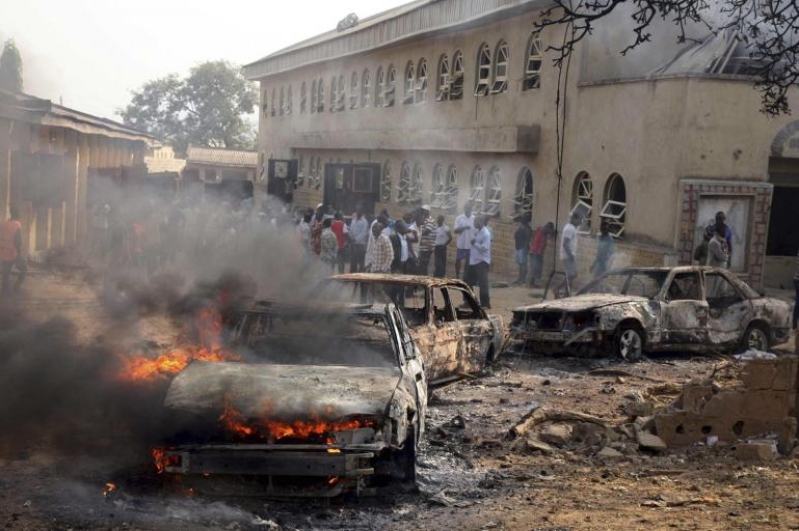
The leader of the Islamic extremist group Boko Haram has announced it has a new mission: fighting the "Christianization of society" by bombing churches, and focusing their efforts on attacking Christian humanitarian groups.
According to the BBC, Abu Musab al-Barnawi, who was previously spokesman for the Nigerian-based Islamists and took over as head of the group in 2009, is featured in the latest issue of the ISIS newspaper al-Nabaa. In the report translated by SITE Intelligence Group, al-Barnawi said his group "remained a force to be reckoned with" and said it had been drawing new recruits - all of whom had vowed to to fight "Christianization of society."
Instead of targeting fellow Muslims at mosques and marketplaces, Boko Haram will focus on attacking Christian humanitarian groups that"exploit the condition of those who are displaced under the raging war, providing them with food and shelter and then Christianizing their children."
Al-Barnawi says the militants will respond to that threat by "booby-trapping and blowing up every church that we are able to reach, and killing all of those (Christians) who we find from the citizens of the cross."
He also said that under his leadership, the militants will work to take back territory. The group, which lost most of the territory it controlled 18 months ago, is fighting to overthrow Nigeria's government.
The New York Post notes that the interview with al-Barnawi indicates a "major shift in strategy" for the Muslim extremists who have killed many more Muslims than Christians in attacks on mosques with suicide bombers and gunmen.
Established in 2002, Boko Haram initially focused on opposing Western-style education. However, under the leadership of al-Barnawi, the terrorist group became more radical, carried out more killings and swore allegiance to ISIS in March 2015. Today, Boko Haram refers to itself as IS' "West African province".
Over the past seven years, the group has killed more than 20,000 people and drove more than 2.2 million from their homes, and still stages suicide bombings in northeast Nigeria and neighboring Cameroon, Niger and Chad.
In July, it was revealed that just under a quarter of a million children in Nigeria's northeastern state of Borno suffer from life-threatening malnourishment due to the group's disruption of trade and healthcare.
"Some 134 children on average will die every day from causes linked to acute malnutrition if the response is not scaled up quickly," said Manuel Fontaine, UNICEF's regional director for western and central Africa, told Reuters.
Last week, Boko Haram ambushed a humanitarian convoy, killing three civilians including a UN employee and causing the suspension of UN aid to Nigeria's northeast.







